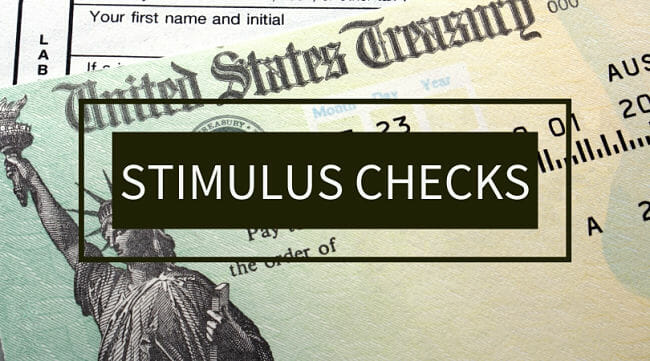Federal Aid for Connecticut

Senator Chris Murphy's office has provided the below breakdown of the aid expected to be provided to the state and local municipalities by the Coronavirus Aid, Relief, and Economic Security (CARES) Act passed by Congress in late March.
For further information on the state's response to the coronavirus, visit ct.gov/coronavirus
Aid to Support Individuals
- Every individual making less than $75,000 will receive $1,200 in cash payments, with an additional $500 for each dependent child in the household under 17. Those making over those levels will see their benefits phased down.
- The IRS launched a web portal for people who do not usually file a tax return to enable them to enter their information in order to receive their Economic Impact Payment. The IRS has rolled out a tool called “Get My Payment” where people can track their payment and enter their direct deposit information if desired. Information on both of these programs and answers to frequently asked questions can be found at www.irs.gov/eip.
Aid to Support Connecticut and Connecticut's Cities and Towns
(Note: These are estimates and more information comes out from agencies daily. If you have further questions on specific lines, please reach out to Senator Murphy's office.)
- $1.3 billion through a new “Coronavirus Relief Fund” to help the state and towns cover costs of responding to coronavirus;
- For more information see the following release from Treasury Department State and Local Governments
- $489 million to maintain transit systems in Connecticut;
- The FAA has announced the aid to CT airports
- $440 million in increased Medicaid payments for the duration of the public health emergency for COVID-19;
- 16 Health Centers in Connecticut will be receiving $16 million to support the state’s COVID-19 response as part of the funding Congress provided in the CARES Act.
- $24.1 million of emergency Community Development Block Grant (CDBG) funding for Connecticut cities and towns;
- Here is a list of CDBG funds that have already gone out the door
- $111 million in additional funding to school districts distributed through the Title I formula to help address problems caused by school closures due to coronavirus, as well as an additional approximately $28 million through a new Governor’s Stabilization Fund to help K-12 districts and colleges respond to coronavirus;
- The Department of Education announced more information today regarding the Governor’s Stabilization Fund
- $134 million to help Connecticut colleges and universities respond to coronavirus;
- Here is a list of funding for colleges and universities.
- $23.3 million in Child Care Development Block Grant (CCDBG) funding to help child care providers maintain operations and meet emergency staffing needs;
- $12 million from the Community Services Block Grant to address unemployment and economic disruptions in local communities;
- $11.181 million in additional funding for Low Income Home Energy Assistance Program (LIHEAP) to provide low-income residents help paying heating and cooling bills;
- $8.4 million to Connecticut and localities through the Edward Byrne Memorial Justice Assistance Grant (JAG) Program to help state and local law enforcement respond to the crisis, including through the purchase of personal protective equipment and other needed items;
- $7.8 million to Connecticut’s state and local health departments through the Centers for Disease Control and Prevention’s Public Health Emergency Preparedness to be used for medical supplies, surveillance, lab testing, infection control and mitigation;
- This is in addition to the $7.558 million Connecticut received on March 11 under the first relief package, the Coronavirus Preparedness and Response Supplemental Appropriations Act, to support the state and local public health response.
- $5.4 million to help Connecticut prepare for, and respond to, coronavirus in the 2020 Federal election cycle, including new election security measures to protect the integrity of voting systems and access to the ballot box;
- The Connecticut delegation and Secretary of State Denise Merrill did a joint announcement on this funding
- $679,000 through the Manufacturing Extension Partnership to help small and medium sized manufacturers;
- $486,000 through the National Endowment for the Humanities and $447,100 through the National Endowment for the Arts for grants to museums, libraries, and other organizations;
- $475,421 through Housing Opportunities for People with AIDS to assist with rental payments as well as additional funding to help Connecticut residents avoid evictions.
- Billions in additional SNAP and WIC funding to meet new demand for those programs and increased program flexibilities that let more people get the maximum SNAP benefit and waivers for work requirements.
- $3 billion to help those currently assisted through federal housing programs remain in their homes and avoid evictions.
- In addition, nearly $23.5 billion in aid to farms has been announced; Details are not yet available on its distribution.
- $900 million in additional assistance to food banks to help ensure shelves are stocked.
- Yesterday the Connecticut Department of Social Services (DSS) announced the allocation of over $3.8 million in federal food assistance to two of the state’s largest food banks as part of The Emergency Food Assistance Program (TEFAP) funding included in the Families First Coronavirus Response Act of 2020. The CARES Act authorized additional funding.





